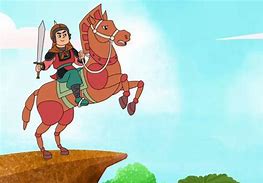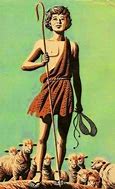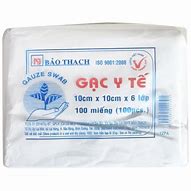
Thánh Gióng Truyện Cổ Tích
Thần HERMES (Thần thoại La Mã gọi là Mercury) là sứ giả đưa tin của các vị thần và là người dẫn đường cho các linh hồn sau khi chết xuống địa phủ. Bản tính Hermes vốn hiếu động thông minh từ nhỏ. Chàng từng giúp đỡ các anh hùng Odysseus và Perseus trong những cuộc đi săn của họ.
Thần HERMES (Thần thoại La Mã gọi là Mercury) là sứ giả đưa tin của các vị thần và là người dẫn đường cho các linh hồn sau khi chết xuống địa phủ. Bản tính Hermes vốn hiếu động thông minh từ nhỏ. Chàng từng giúp đỡ các anh hùng Odysseus và Perseus trong những cuộc đi săn của họ.
Ali Baba và bốn mươi tên trộm – Alibaba and 40 thieves
Truyện cổ tích tiếng Anh này xuất phát từ một bộ sưu tập truyện lớn hơn có tựa đề “1001 Đêm”. Câu chuyện xoay quanh Ali Baba khi anh phải chiến thắng một nhóm cướp.
Cô bé bán diêm – The Little Match Girl
It was terribly cold and nearly dark on the last evening of the old year, and the snow was falling fast. In the cold and the darkness, a poor little girl, with a bare head and naked feet, roamed through the streets. It is true she had on a pair of slippers when she left home, but they were not of much use. They were very large, so large, indeed, that they had belonged to her mother, and the poor little creature had lost them in running across the street to avoid two carriages that were rolling along at a terrible rate. One of the slippers she could not find, and a boy seized upon the other and ran away with it, saying that he could use it as a cradle when he had children of his own. So the little girl went on with her little naked feet, which were quite red and blue with the cold.
In an old apron, she carried a number of matches and had a bundle of them in her hands. No one had bought anything of her the whole day, nor had anyone given her even a penny. Shivering with cold and hunger, she crept along; poor little child, she looked the picture of misery. The snowflakes fell on her long, fair hair, which hung in curls on her shoulders, but she regarded them not.
Lights were shining from every window, and there was a savory smell of roast goose, for it was New-year’s eve – yes, she remembered that. In a corner, between two houses, one of which projected beyond the other, she sank down and huddled herself together. She had drawn her little feet under her, but she could not keep off the cold; and she dared not go home, for she had sold no matches, and could not take home even a penny of money. Her father would certainly beat her; besides, it was almost as cold at home as here, for they had only the roof to cover them, through which the wind howled, although the largest holes had been stopped up with straw and rags.
Her little hands were almost frozen with the cold. Ah! Perhaps a burning match might be some good, if she could draw it from the bundle and strike it against the wall, just to warm her fingers.
She drew one out – “scratch!” how it sputtered as it burnt! It gave a warm, bright light, like a little candle, as she held her hand over it. It was really a wonderful light. It seemed to the little girl that she was sitting by a large iron stove, with polished brass feet and a brass ornament. How the fire burned! And seemed so beautifully warm that the child stretched out her feet as if to warm them, when, all the flame of the match went out, the stove vanished, and she had only the remains of the half-burnt match in her hand.
She rubbed another match on the wall. It burst into a flame, and where its light fell upon the wall it became as transparent as a veil, and she could see into the room. The table was covered with a snowy white tablecloth, on which stood a splendid dinner service, and a steaming roast goose, stuffed with apples and dried plums. And what was still more wonderful, the goose jumped down from the dish and waddled across the floor, with a knife and fork in its breast, to the little girl. Then the match went out, and there remained nothing but the thick, damp, cold wall before her.
She lighted another match, and then she found herself sitting under a beautiful Christmas tree. It was larger and more beautifully decorated than the one which she had seen through the glass door at the rich merchant’s. Thousands of tapers were burning upon the green branches, and colored pictures, like those she had seen in the show windows, looked down upon it all. The little one stretched out her hand towards them, and the match went out.
The Christmas lights rose higher and higher, till they looked to her like the stars in the sky. Then she saw a star fall, leaving behind it a bright streak of fire. “Someone is dying,” thought the little girl, for her old grandmother, the only one who had ever loved her, and who was now dead, had told her that when a star falls, a soul was going up to God.
She again rubbed a match on the wall, and the light shone around her; in the brightness stood her old grandmother, clear and shining, yet mild and loving in her appearance.
“Grandmother,” cried the little one, “O take me with you; I know you will go away when the match burns out; you will vanish like the warm stove, the roast goose, and the large, glorious Christmas tree.”
And she made haste to light the whole bundle of matches, for she wished to keep her grandmother there. And the matches glowed with a light that was brighter than the noon day, and her grandmother had never appeared so large or so beautiful. She took the little girl in her arms, and they both flew upwards in brightness and joy far above the earth, where there was neither cold nor hunger nor pain, for they were with God.
In the dawn of morning there lay the poor little one, with pale cheeks and smiling mouth, leaning against the wall; she had been frozen to death on the last evening of the year, and the New-year’s sun rose and shone upon a little corpse! The child still sat, in the stiffness of death, holding the matches in her hand, one bundle of which was burnt.
“She tried to warm herself,” said some.
No one imagined what beautiful things she had seen, nor into what glory she had entered with her grandmother, on New-year’s day.
A long time ago and far, far away an old woman was sitting in her rocking chair thinking how happy she would be if she had a child. Then, she heard a knock at the door and opened it. A lady was standing there and she said, “If you let me in, I will grant you a wish.” The old woman let the woman in firstly because she felt pity, secondly because she knew what she’d wish for…a child. After she washed the lady up and fed her, she saw that she was really beautiful.
The lady slept soundly all night long and then right before she left, she said, “Now, about your wish. What do you want?”
The lady thought about most people’s wishes to be the richest in the world, the most powerful person, the smartest, and the prettiest. But the old woman wished for
something the lady could not believe. She said, “I would like a child.”
“What did you say?” she asked because she was astonished at what the old lady asked for. The old lady repeated what she said. “I would like a child.”
The lady then placed a tiny seed in the old woman’s hand and gave her instructions. ” Plant this seed, water it carefully, watch over it, and give it your love. If you do all those things, then you will have a child.”
So the old woman did all of those things the lady had told her to. In a week, there was a beautiful yellow flower in place of the seed. The next day, the flower bloomed. Inside the flower was a beautiful little girl who was the size of the woman’s thumb so she called her Thumbelina. She made her a little dress out of golden threads. Thumbellina slept in a walnut shell and brought the old woman joy and happiness.
But, one day when Thumbellina went down for her nap, a frog hopped through the open window and said, “You will be a perfect bride for my son,” and she took Thumbellina to a lily pad and hopped off to find her son.
Thumbellina cried and some little guppies heard her and chewed the roots off the lily pad to help her escape. Thumbellina’s lily pad floated away. A few hours later, she finally stopped floating. During the summer, she ate berries and drank the dew off the leaves. But then winter came and she needed shelter. A kindly mouse let her stay with it, but it said, “You’ll have to marry my friend, Mole, because I cannot keep you for another winter.”
The next day she went to see Mole. In one of the tunnels, she found a sick bird and said, “Poor thing, I will bury it.” Then she found out that it was still alive and she cared for it until it was ready to fly. It flew off. That fall she nearly had to marry Mole. But then she heard a familiar tweet and an idea popped up in the bird’s head.
“You can come down to the warm country,” said the bird, so Thumbellina hopped on the bird’s back and flew to the warm country. The people there who were like her renamed her Erin. She married a prince and she lived happily ever after.




















